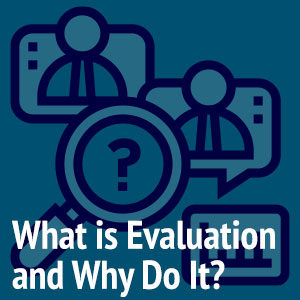
Although the author of Everybody Lies: Big Data, New Data, and What the Internet Can Tell Us About Who We Really Are, (Seth Stephens-Davidowitz, Dey St., 2017,) hesitates to specify precisely what ‘big data’ is, he is confident that we are living through an era in which there is an explosion in the amount and quality of data—especially internet-imbedded data—that can tell us things about humans that previous data sources and data analysis methods have been unable to reveal. In fact, Stephens-Davidowitz argues in this quick and easy to read book that, “I am now convinced that Google searches are the most important data set ever collected on the human psyche…and I am convinced that new data increasingly available in our digital age will expand our understanding of humankind.”
Stephens-Davidowitz argues that unlike previous, predominately survey-based data, the emergence of big data—primarily data provided by Google and other on-line searches, makes insights into humans’ deepest interests, desires, behaviors, and values much more transparent and accessible. Whereas traditional survey research has a number of vulnerabilities (e.g., people are not candid, and in fact lie, they provide socially desirable answers, they both exaggerate or underestimate behaviors and characteristics, etc.) analysis of internet data together with the use of new analytical tools (e.g., Google trends), now makes available immensely more accurate information about what people actually think, believe, and fear.
Stephens-Davidowitz illustrates the insights that collection and analysis of internet-based data now make possible. He shows, for example, how analysis of Google searches about race revealed voters’ real (vs. survey-reported) attitudes toward race even in otherwise seemingly liberal precincts. These attitudes—largely hidden from analysts who used traditional kinds of survey methods, made possible the surprising election of a figure like Donald Trump, who mobilized anti-immigrant sentiment and racist allusions to win the 2016 presidential election. “Surveys and conventional wisdom placed modern racism predominantly in the South and mostly among Republicans. But the places with the highest racist search rates included upstate New York, western Pennsylvania, eastern Ohio, and rural Illinois…” (p. 7) “The Google searches revealed a darkness and hatred among a meaningful number of Americans that pundits for many years missed. Search data revealed that we live in a very different society from the one academics and journalists, relying on polls, thought that we live in. It revealed a nasty, scary, and wider-spread rage that was waiting for a candidate to give voice to.” (p. 12)
Everybody Lies…examines the ways that new methods of analyzing internet data can yield accurate insights about what people are really concerned with and thinking about. In a chapter titled “Digital Truth Serum,” the author surveys a number of topics including gender bias and sexism, America’s Nazi sympathizers, and the underreported rise of child abuse during economic recessions. He repeatedly demonstrates how internet data reveal accurate and often counter-intuitive findings. In one instance, the author shows that, in fact, internet data reveal that we are more likely to interact with someone with opposing political ideas on the internet than in real life, and that in many instances—and counter to what is widely believed—liberals and conservatives often visit and draw upon the same news websites. (It appears that fascist sympathizers and liberals both rely on nytimes.com)
Everybody Lies…makes an argument for a ‘revolution’ in social science research. Stephens-Davidowitz believes that the collection and careful analysis of internet-based data promises a much more rigorous and penetrating approach to answering questions about peoples’ genuine attitudes, behaviors, and political dispositions. Along the way to demonstrating the superiority of such research, Stephens-Davidowitz touches on some important, but taboo and previously difficult-to-answer questions: What percentage of American males are gay? Is Freud’s theory of sexual symbols in dreams really accurate? At what age are political attitudes first established? How racist are most Americans?
Stephens-Davidowitz writes, “Frankly, the overwhelming majority of academics have ignored the data explosion caused by the digital age. The world’s most famous sex researches stick with the tried and true. They ask a few hundred subjects about their desires; they don’t ask sites like PornHub for their data. The world’s most famous linguists analyze individual tests; they largely ignore the patterns revealed in billions of books. The methodologies taught to graduate students in psychology, political science, and sociology have been, for the most part, untouched by the digital revolution. The broad, mostly unexplored terrain opened by the data explosion has been left to a small number of forward-thinking professors, rebellious grad students and hobbyists. That will change.” (p. 274)
Resources:
Everybody Lies: Big Data, New Data, and What the Internet Can Tell Us About Who We Really Are, Seth Stephens-Davidowitz, Dey St., 2017



